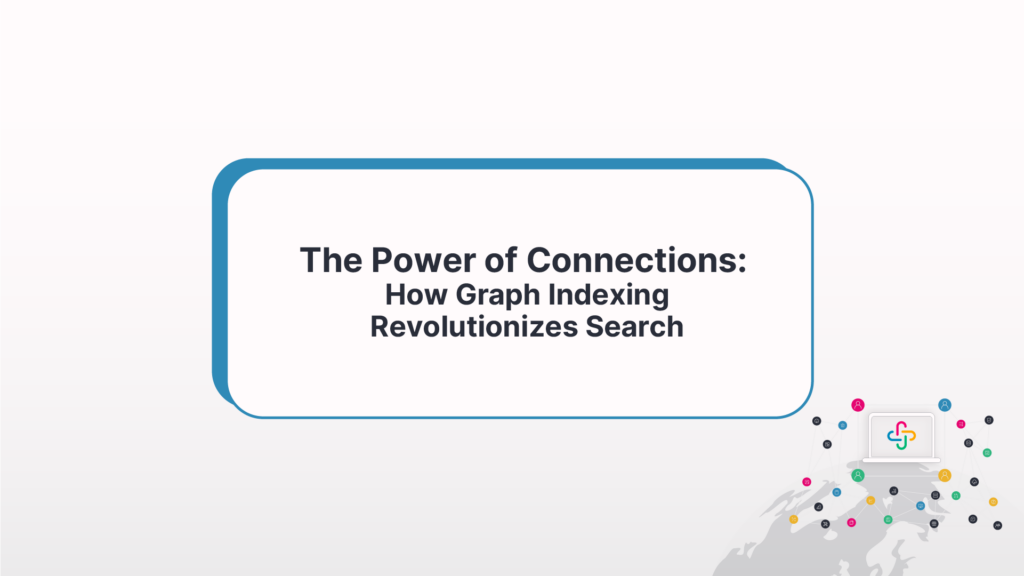Beyond Relevance:
Ranking Search Results with the Power of Relationships
- Bill Palifka
- January 22, 2024
While keyword relevance remains a cornerstone of search, there’s a growing need for a more nuanced approach. Traditional search engines often struggle to differentiate between truly relevant results and those that simply match keywords superficially. Here’s where relationship-based ranking, powered by graph technology, steps in.
The Challenge: Ranking Beyond Surface-Level Relevance
Keyword-based search engines rank results based on their relevance to the search query. However, this approach can overlook valuable information with less obvious keyword matches. Imagine searching for “electric cars” and missing out on groundbreaking research papers or insightful blog posts simply because they don’t explicitly mention “electric cars” in the title.
The Graph Advantage: Ranking Based on Connections
Graph databases empower search engines to rank results based on the strength and relevance of the relationships between data points. This allows them to prioritize information that is not just topically relevant, but also deeply connected to the user’s intent. In the “electric car” example, relevant research papers and blog posts might not explicitly mention “electric cars” in the title, but they could be highly connected to the broader topic through related keywords or concepts.
Key Features for Enhanced Search Experiences
Relevance with Depth: Prioritizing Meaningful Connections
Relationship-based ranking ensures that search results are not just relevant to the keywords, but also meaningfully connected to the user’s intent. This leads to a richer search experience where users discover valuable information that might be overlooked by traditional search engines.
Contextual Understanding: Ranking Based on the Bigger Picture
Graph technology allows the search engine to understand the context of a search query by analyzing the relationships between different data points. This contextual understanding informs the ranking process, ensuring that results are prioritized based on their relevance to the broader topic or concept.
Improved Search Quality: Surfacing the Most Valuable Information
By factoring in the strength and relevance of relationships, search engines can surface the most valuable information for the user’s needs. This reduces the noise and clutter of irrelevant results, leading to a more productive and satisfying search experience.
Industry Applications: Transforming Search Across Domains
E-commerce: Personalized Search Experiences that Convert
Online retailers can leverage relationship-based ranking to personalize search experiences for customers. By understanding the relationships between products, customer behavior, and past purchases, the search engine can prioritize results that are most likely to resonate with each individual customer. This leads to a more satisfying shopping experience and increased conversion rates.
Knowledge Management: Unearthing Hidden Insights Within Your Organization
Businesses often struggle to leverage the vast amount of knowledge trapped within their organization. Relationship-based ranking empowers them to extract valuable insights from internal documents, emails, and other data sources. By analyzing the relationships between concepts and topics, knowledge management systems can surface relevant information that might be hidden or overlooked by traditional keyword searches. This fosters better decision-making and collaboration within the organization.
Marketing & Sales: Identifying High-Value Leads and Customers
Relationship-based ranking can be a game-changer for marketing and sales teams. By analyzing the connections between customer data points, demographics, and past interactions, businesses can identify high-value leads and target their marketing efforts more effectively. This leads to a more efficient sales funnel and increased customer acquisition rates.
Competitive Intelligence: Staying Ahead of the Curve
Understanding your competitors is crucial for business success. Relationship-based ranking helps businesses analyze vast amounts of market data, news articles, and social media conversations. By uncovering hidden connections and trends, businesses can gain valuable insights into their competitors’ strategies and stay ahead of the curve in the ever-evolving market landscape.
The Future of Search: A More Connected Journey
Relationship-based ranking signifies a shift towards a more nuanced and contextual search experience. As data continues to grow in complexity, the ability to analyze relationships becomes paramount. Graph technology offers a glimpse into the future of search, a future where information retrieval is not just efficient but also deeply connected and meaningful.
Get Smarter with Relationship-based Ranking



